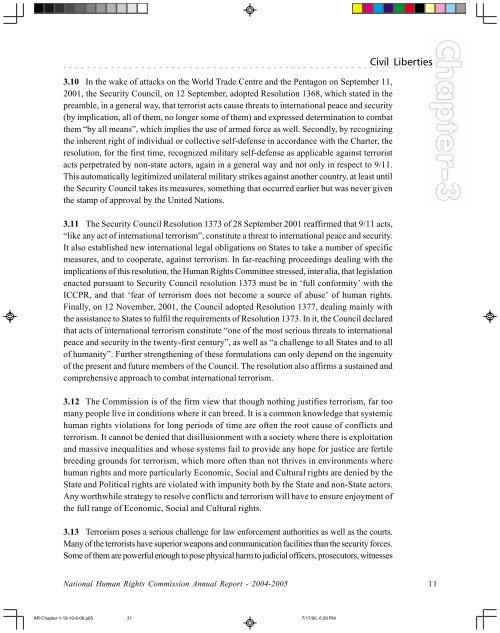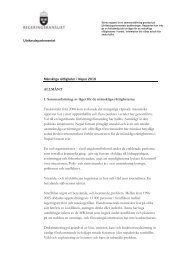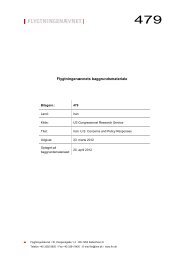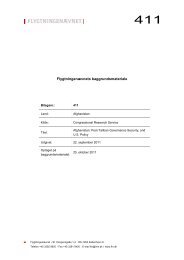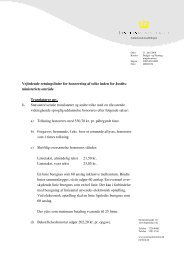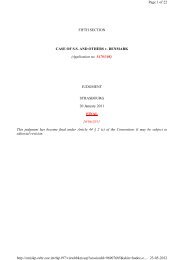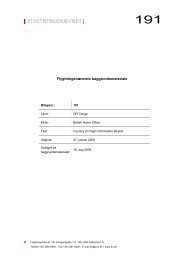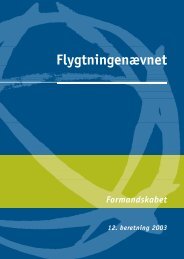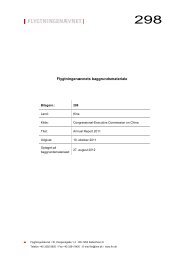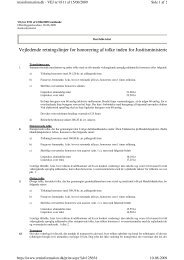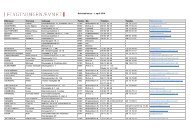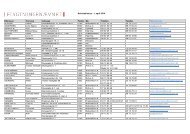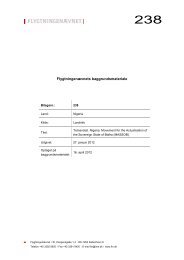Annual Report - National Human Rights Commission
Annual Report - National Human Rights Commission
Annual Report - National Human Rights Commission
You also want an ePaper? Increase the reach of your titles
YUMPU automatically turns print PDFs into web optimized ePapers that Google loves.
Civil Liberties<br />
○ ○ ○ ○ ○ ○ ○ ○ ○ ○ ○ ○ ○ ○ ○ ○ ○ ○ ○ ○ ○ ○ ○ ○ ○ ○ ○ ○ ○ ○ ○ ○ ○ ○ ○ ○ ○ ○ ○ ○ ○ ○ ○ ○ ○ ○ ○ ○ ○ ○ ○ ○ ○ ○ ○ ○ ○ ○ ○ ○ ○<br />
○<br />
3.10 In the wake of attacks on the World Trade Centre and the Pentagon on September 11,<br />
2001, the Security Council, on 12 September, adopted Resolution 1368, which stated in the<br />
preamble, in a general way, that terrorist acts cause threats to international peace and security<br />
(by implication, all of them, no longer some of them) and expressed determination to combat<br />
them “by all means”, which implies the use of armed force as well. Secondly, by recognizing<br />
the inherent right of individual or collective self-defense in accordance with the Charter, the<br />
resolution, for the first time, recognized military self-defense as applicable against terrorist<br />
acts perpetrated by non-state actors, again in a general way and not only in respect to 9/11.<br />
This automatically legitimized unilateral military strikes against another country, at least until<br />
the Security Council takes its measures, something that occurred earlier but was never given<br />
the stamp of approval by the United Nations.<br />
3.11 The Security Council Resolution 1373 of 28 September 2001 reaffirmed that 9/11 acts,<br />
“like any act of international terrorism”, constitute a threat to international peace and security.<br />
It also established new international legal obligations on States to take a number of specific<br />
measures, and to cooperate, against terrorism. In far-reaching proceedings dealing with the<br />
implications of this resolution, the <strong>Human</strong> <strong>Rights</strong> Committee stressed, inter alia, that legislation<br />
enacted pursuant to Security Council resolution 1373 must be in ‘full conformity’ with the<br />
ICCPR, and that ‘fear of terrorism does not become a source of abuse’ of human rights.<br />
Finally, on 12 November, 2001, the Council adopted Resolution 1377, dealing mainly with<br />
the assistance to States to fulfil the requirements of Resolution 1373. In it, the Council declared<br />
that acts of international terrorism constitute “one of the most serious threats to international<br />
peace and security in the twenty-first century”, as well as “a challenge to all States and to all<br />
of humanity”. Further strengthening of these formulations can only depend on the ingenuity<br />
of the present and future members of the Council. The resolution also affirms a sustained and<br />
comprehensive approach to combat international terrorism.<br />
3.12 The <strong>Commission</strong> is of the firm view that though nothing justifies terrorism, far too<br />
many people live in conditions where it can breed. It is a common knowledge that systemic<br />
human rights violations for long periods of time are often the root cause of conflicts and<br />
terrorism. It cannot be denied that disillusionment with a society where there is exploitation<br />
and massive inequalities and whose systems fail to provide any hope for justice are fertile<br />
breeding grounds for terrorism, which more often than not thrives in environments where<br />
human rights and more particularly Economic, Social and Cultural rights are denied by the<br />
State and Political rights are violated with impunity both by the State and non-State actors.<br />
Any worthwhile strategy to resolve conflicts and terrorism will have to ensure enjoyment of<br />
the full range of Economic, Social and Cultural rights.<br />
3.13 Terrorism poses a serious challenge for law enforcement authorities as well as the courts.<br />
Many of the terrorists have superior weapons and communication facilities than the security forces.<br />
Some of them are powerful enough to pose physical harm to judicial officers, prosecutors, witnesses<br />
<strong>National</strong> <strong>Human</strong> <strong>Rights</strong> <strong>Commission</strong> <strong>Annual</strong> <strong>Report</strong> - 2004-2005<br />
11<br />
AR-Chapter-1-19-10-6-06.p65<br />
31<br />
7/17/06, 6:29 PM


